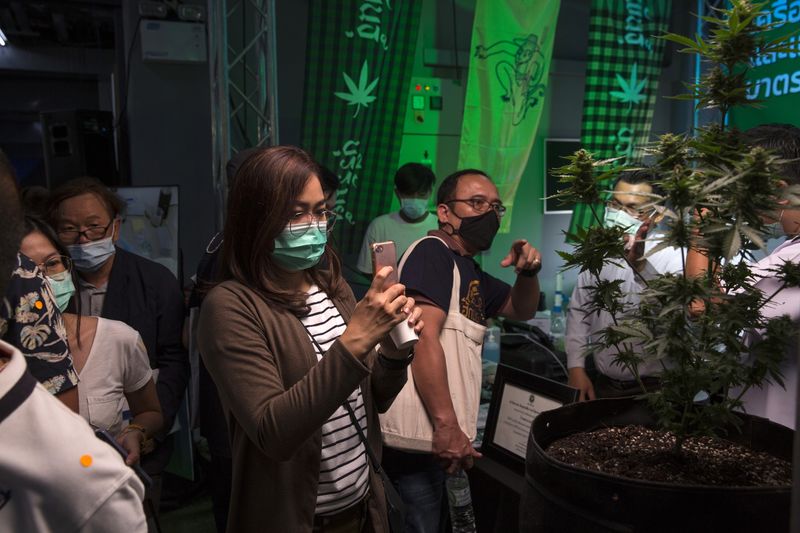
Thailand has slightly revised rules on the sale and use of cannabis as a “controlled herb,” while awaiting a controversial bill on the plant that has been delayed due to criticism from lawmakers concerned about recreational drug use.
The government in June became the first in Asia to decriminalize use of cannabis, but designated the plant as a controlled herb and banned sales of all parts of the plant to people under the age of 20 and women who are pregnant or breastfeeding. The revised rules announced late Friday in a Health Ministry notice say that only cannabis buds -- the flowers that contain the main concentrations of cannabinoid drugs -- will be considered a controlled herb.
Licensed businesses must also report to the government the amount of controlled-herb stocks they hold and details of the sourcing and uses. Businesses are required to inform the government each time they export controlled herbs.
“The previous version listed the whole cannabis plant as controlled, which made it difficult to be used for medical, health and economic purposes,” said Thongchai Lertwilairattanapong, director-general of the Department of Thai Traditional and Alternative Medicine. “As the draft bill is not yet complete, we need to control it in ways that still allow beneficial uses.”
Sales to students or through vending machines or electronic or online channels are now also prohibited, as is commercial advertising.
Since Thailand’s landmark decriminalization on June 9, the government has repeatedly said the move was aimed at medical and commercial use and has frowned upon recreational use -- though it always stopped short of an explicit ban. However, extracts that contain more than 0.2% of the psychoactive component, tetrahydrocannabinol (THC), remain illegal.
The move to decriminalize prompted a prominent medical doctor and five opposition lawmakers to petition an administrative court on Thursday to revoke the June 9 law, citing concerns over recreational use of the plant.
The cannabis bill, which passed the first reading in June and was designed to give the government more control over the industry, was withdrawn from a parliament session in September after several lawmakers said the draft lacked enough provisions to prevent recreational use and threatened to vote it down. The bill is expected to be reintroduced for parliamentary debate this month.